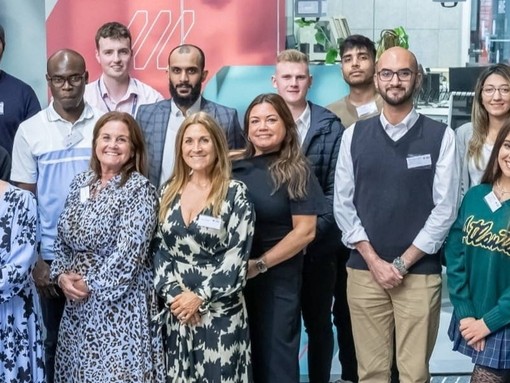
The Future of Engineering Recruitment: David Lynchehaun, Morson Group Sales Director Discusses Skills Shortages, Brexit and Technology
Contents
Contents
David Lynchehaun, Morson Group Sales Director is featured discussing the future of engineering recruitment.
The skills shortage, Brexit and the growing importance of technology are all hot topics in the industry right now.
Find out more about how Morson can help you with your recruitment needs.
In the latest SIA Staffing Industry Review, David Lynchehaun, Morson Group Sales Director is featured discussing the future of engineering recruitment.
Read on to find out more about the latest industry trends including the skills shortage, the impact of Brexit and the growing importance of technology in the recruitment industry….
Demand remains strong for engineering talent in the UK but recruiting in the sector faces some challenges brought on by a skills shortage. In addition, thanks to the rapid evolution of technology, clients are changing how they engage with recruitment firms. Brexit also looms with its uncertainty.
In a report released in early May, the Association of Professional Staffing Companies reported that demand for contract workers within engineering fell by 20%; however, demand for permanent placement rose by 16%.
The Candidate Experience
In the UK, competition is fierce for top engineering candidates, and there’s a growing shortage of talent with in-demand engineering skill sets, says David Lynchehaun, group sales director at Morson Group.
And the skills shortage is more problematic in some sectors than others. For example, in the nuclear sector, nearly 50% of workers will reach retirement age in the coming decade.
Given the shortage, Lynchehaun says it has become increasingly important for clients to ensure the candidate journey is as positive and seamless as possible. This is especially true with social media and smartphones making communication ubiquitous; meaning a candidate’s unhappiness with the recruitment process can spread quickly.
Separately, some companies are also capitalising on transferable skills by hiring people from alternative sectors. Casting the recruitment net outside of the traditional talent pool can help to deal with peaks and troughs during project delivery, while revealing insight into how best to upskill other candidates.
The demand for talent also highlights the need to bring more people into the engineering field and establish candidate pipelines that are fit-for-purpose. As they leave school, candidates are considering a multitude of industry pathways, and not necessarily engineering, which only fuels the problem further.
There’s also somewhat of an industry identity crisis going on in the UK, whereby young people simply aren’t aware of the breadth of roles and opportunities available in engineering, Lynchehaun says.
Morson is dedicated to providing candidates with the best customer experience possible. Therefore, we have implemented the latest web accessibility technology to ensure that there are no barriers to success.Find out more here.
Brexit
What is Brexit’s impact on the UK engineering staffing market? Morson Group’s David Lynchehaun says his company’s work is UK-based, however, there is a growing need for boots-on-the-ground labour, especially for major projects such as the High Speed 2 (HS2) rail line. The UK has sourced workers from throughout Europe in the past to fill the labour gap, but it’s unknown how Brexit will ultimately affect such overseas labour pipelines.
“It’s an issue that is definitely being considered and forms part of the group’s ongoing risk assessment and risk mitigation. But until we know what the agreed Brexit deal looks like, it is still very much business as usual for Morson,” he says.
To read the full article by the Staffing Industry Analysts, click here.
Technology
The recruitment industry has embraced artificial intelligence in a big way over the past few years, from becoming more aware of how analytics can assist with hiring to actually using AI capabilities. Technology allows us to automate parts of the recruiting workflow, especially repetitive, high-volume tasks such as reviewing CVs. Ultimately, AI can make the recruitment process faster and more efficient.
AI recruiting video interview platforms, for example, use biometric and psychometric analysis to evaluate not only the quality of candidate answers but also voice quality, the pace of speech, voice energy, use of fillers, facial micro-expressions and body language.
Morson has partnered with RecruitmentSMART to implement its game-changing recruitment sourcing and screening technology. SniperAI provides a game-changing technology that incorporates machine learning and auto screening to match job specifications to potential candidate CVs at rapid speed. Read more about the latest technology here.
To find out more about how Morson can help you with your recruitment needs, click here. Or, to find your next opportunity, search Morson jobs here.
















